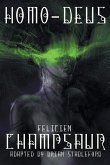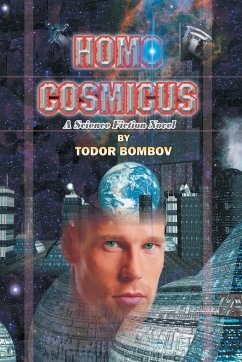This story describes a new species of human, Homo transformans, and conflicts that arise from their ability to transform into different animal species including apex predators. Gene functions and the (imaginary) genetics of transformation support an innovative story of how some Homo sapiens became Homo transformans. The narrative describes the clash between morally corrupt organizations that use the capabilities of H. transformans to achieve dominance and the groups that defend and support them. Two factions emerge to determine the fate of the new species. In the end, the species defenders must face their mortal enemy in a battle they cannot win.
Hinweis: Dieser Artikel kann nur an eine deutsche Lieferadresse ausgeliefert werden.
Hinweis: Dieser Artikel kann nur an eine deutsche Lieferadresse ausgeliefert werden.







